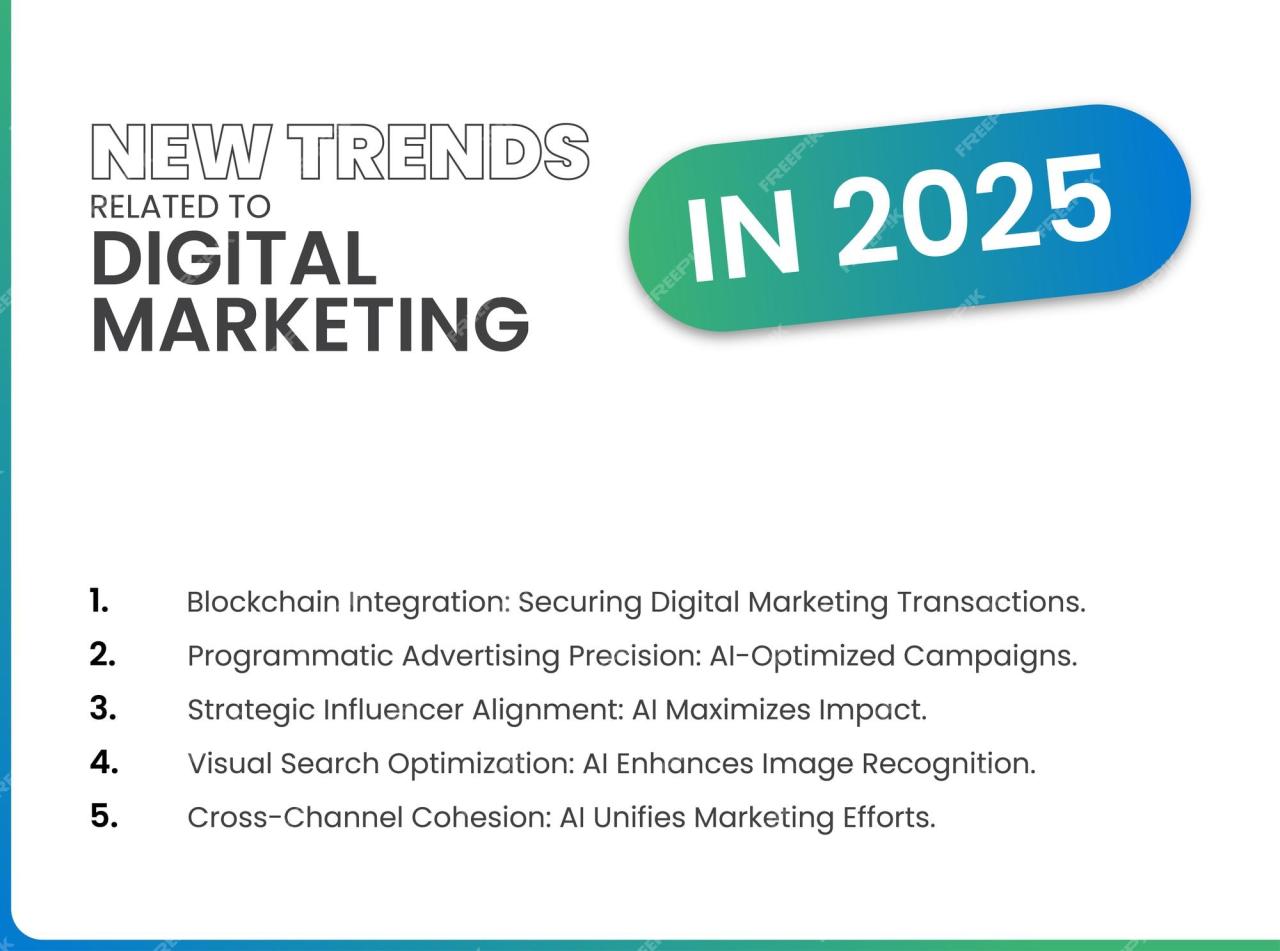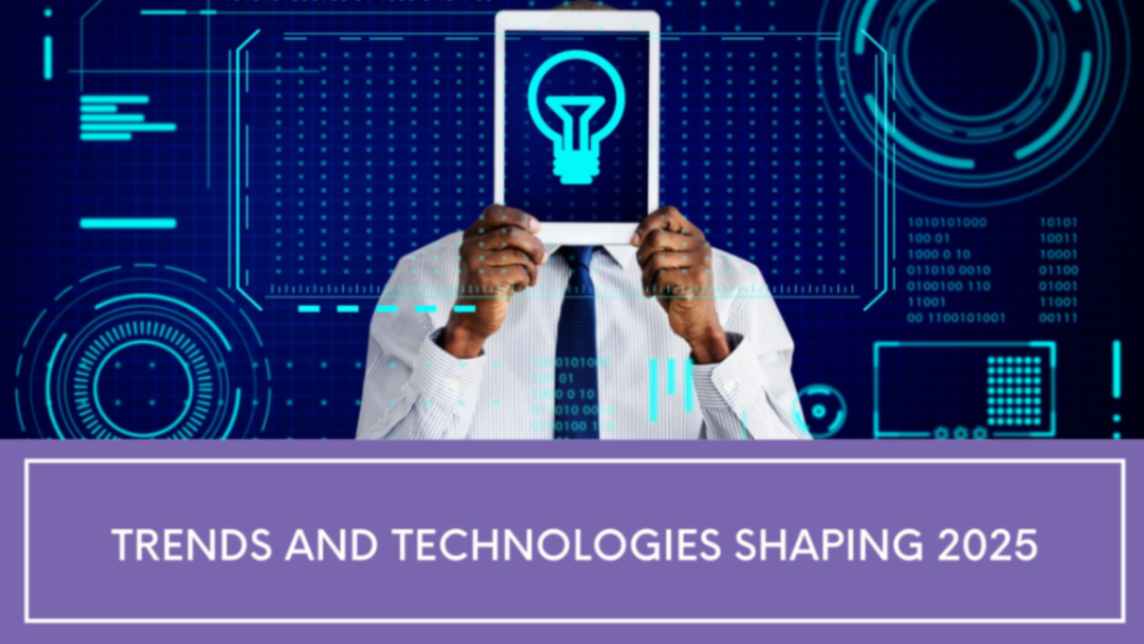As we delve into the realm of Digital lifestyle trends shaping 2025, we uncover a landscape where technology intertwines seamlessly with our daily lives, revolutionizing the way we work, socialize, and prioritize our well-being. The evolution of digital trends presents a transformative journey that individuals and businesses alike must embark on to stay relevant in a rapidly changing world.
Overview of Digital Lifestyle Trends by 2025

The digital landscape is rapidly evolving, with new trends emerging that are set to shape the way we live and interact by 2025. These trends encompass various aspects of our daily lives, from communication and entertainment to shopping and work.Digital lifestyle trends are expected to have a significant impact on key areas such as:
1. Smart Homes and IoT Integration
Smart home technology is on the rise, allowing individuals to control their home devices remotely and create more efficient and convenient living spaces. The integration of Internet of Things (IoT) devices will enable seamless connectivity and automation within homes.
2. Remote Work and Virtual Collaboration
The shift towards remote work is likely to continue, with virtual collaboration tools becoming essential for businesses and individuals. This trend will shape the future of work, offering flexibility and new opportunities for productivity.
3. Personalized Experiences and AI
Artificial Intelligence (AI) will play a crucial role in delivering personalized experiences across various digital platforms. From content recommendations to tailored shopping experiences, AI algorithms will enhance user interactions and engagement.
4. Digital Health and Wellness
The emphasis on digital health and wellness solutions will grow, with the adoption of wearable devices, telemedicine services, and health tracking apps. These technologies will empower individuals to take control of their well-being and access healthcare remotely.Staying updated with these digital lifestyle trends is essential for individuals and businesses alike.
By embracing these innovations, individuals can enhance their daily lives, while businesses can leverage these trends to drive growth, improve customer experiences, and stay competitive in the digital age.
Technology Integration in Daily Life

Technology integration into daily life by 2025 has become more seamless than ever before. With the rise of smart devices and IoT applications, people are experiencing a transformation in their daily routines. Let's explore some examples of how this integration is shaping the way we live, as well as the benefits and challenges that come with it.
Smart Home Devices
Smart home devices like thermostats, lighting systems, security cameras, and voice assistants are becoming increasingly popular. These devices allow homeowners to control various aspects of their home remotely through their smartphones or voice commands. For example, you can adjust the temperature of your home, turn off lights, and even monitor your security cameras while you're away.
The convenience and efficiency these devices offer are undeniable, making daily tasks more manageable and enhancing overall comfort.
IoT in Healthcare
The Internet of Things has revolutionized the healthcare industry by enabling remote patient monitoring, personalized treatment plans, and improved communication between patients and healthcare providers. Wearable devices like smartwatches and fitness trackers can track vital signs, physical activity, and even detect potential health issues.
This real-time data allows for proactive healthcare management and early intervention, ultimately leading to better health outcomes. However, the challenge lies in ensuring the security and privacy of sensitive health information transmitted through these devices.
Connected Cars
The automotive industry has also embraced technology integration with connected cars that offer features like GPS navigation, driver assistance systems, and in-car entertainment. These smart vehicles can communicate with other cars on the road and infrastructure to enhance safety and efficiency.
For instance, connected cars can alert drivers of potential hazards, optimize route planning, and even enable autonomous driving in certain conditions. Despite the benefits of improved road safety and convenience, concerns about data privacy and cybersecurity in connected vehicles remain a significant challenge.
Smart Shopping Experiences
Retailers are leveraging technology to provide personalized shopping experiences through targeted advertisements, virtual try-on tools, and smart checkout systems. By analyzing customer data and preferences, businesses can tailor their offerings to individual shoppers, creating a more engaging and efficient shopping journey.
While this level of customization enhances customer satisfaction and loyalty, it also raises concerns about data privacy and consumer manipulation.
Conclusion
The integration of technology into daily life by 2025 brings a myriad of benefits in terms of convenience, efficiency, and personalization. However, it also poses challenges related to security, privacy, and ethical considerations. As we continue to embrace these technological advancements, striking a balance between innovation and protection will be crucial in shaping the future of our digital lifestyles.
Influence of Social Media on Lifestyle Choices
Social media platforms play a significant role in shaping lifestyle choices by 2025. These platforms have a profound impact on consumer behavior, trends, and preferences, influencing how individuals perceive and engage with various aspects of their lives. Moreover, social media has the power to affect mental health and well-being in the digital age.
Role of Social Media in Shaping Lifestyle Choices
- Social media platforms act as a source of inspiration for lifestyle choices, showcasing trends in fashion, home decor, travel, and more.
- Users often look to influencers and celebrities on social media for guidance on lifestyle decisions, leading to the adoption of certain behaviors or products.
- Brands leverage social media to promote their products and services, directly influencing consumer preferences and purchasing decisions.
Impact on Consumer Behavior and Trends
- Social media algorithms personalize content based on user preferences, creating echo chambers that reinforce specific lifestyle choices.
- User-generated content on social media platforms shapes consumer perceptions and encourages the adoption of new trends.
- Peer influence and social validation on social media influence individuals to conform to certain lifestyle norms or ideals.
Effect on Mental Health and Well-being
- Excessive time spent on social media can lead to feelings of inadequacy, FOMO (fear of missing out), and low self-esteem among users.
- Cyberbullying and online harassment on social media platforms contribute to negative mental health outcomes for many individuals.
- The curated and often unrealistic portrayal of lifestyles on social media can lead to comparison and feelings of dissatisfaction with one's own life.
Rise of Remote Work and Digital Nomadism

The shift towards remote work and the rise of digital nomadism are becoming significant lifestyle trends by 2025. As technology continues to advance, more individuals are embracing the flexibility and freedom that comes with working remotely and living a nomadic lifestyle.
Benefits of Remote Work and Digital Nomadism
- Flexibility in work schedules and locations, allowing for a better work-life balance.
- Opportunity to travel and explore new places while still being able to work.
- Reduction in commuting time and costs, leading to increased productivity.
- Ability to create a personalized work environment that suits individual preferences.
Challenges of Remote Work and Digital Nomadism
- Difficulty in separating work from personal life when working from home or while traveling.
- Lack of face-to-face interaction with colleagues, potentially leading to feelings of isolation.
- Reliance on stable internet connection for work-related tasks, which can be challenging in certain remote locations.
- Managing work commitments across different time zones when working with a global team.
Technology Enabling Remote Work and Digital Nomadism
- Advancements in communication tools like video conferencing, instant messaging, and project management software.
- Cloud-based services that allow for seamless access to work-related documents and information from anywhere.
- Virtual private networks (VPNs) to ensure secure connections while working remotely.
- Digital nomad communities and platforms that provide resources and networking opportunities for those living a nomadic lifestyle.
Personalized Health and Wellness Tech
Personalized health and wellness technologies have revolutionized the way individuals manage their well-being, offering tailored solutions that cater to specific needs and preferences. As we look ahead to 2025, these advancements are expected to play an even more significant role in shaping lifestyles and promoting overall health.
Advancements in Wearable Tech
Wearable technology, such as fitness trackers and smartwatches, has become increasingly popular for monitoring various health metrics, including heart rate, sleep patterns, and physical activity. These devices provide real-time data that enable individuals to track their progress, set goals, and make informed decisions about their health and fitness routines.
AI-Driven Healthcare Apps
AI-driven healthcare apps leverage artificial intelligence algorithms to analyze large amounts of health data and provide personalized recommendations to users. These apps can offer insights on nutrition, exercise, medication management, and even mental health support, enhancing the overall well-being of individuals in a convenient and accessible way.
Telemedicine Services
Telemedicine services have emerged as a convenient alternative to traditional healthcare delivery, allowing patients to consult with healthcare providers remotely through video calls or chat platforms. By leveraging technology, individuals can access medical advice, prescriptions, and follow-up care from the comfort of their homes, saving time and reducing barriers to healthcare access.
Ending Remarks
In conclusion, the landscape of 2025 is painted with a canvas of digital innovations that promise to reshape our lifestyles in unprecedented ways. From remote work to personalized health tech, the future holds a myriad of possibilities waiting to be explored.
Embracing these trends will not only define our tomorrow but also pave the way for a more connected and efficient digital lifestyle.
Frequently Asked Questions
How important is it to stay updated with digital lifestyle trends for businesses?
Staying updated with digital lifestyle trends is crucial for businesses to remain competitive, adapt to changing consumer behaviors, and leverage new opportunities presented by technology.
What are some examples of personalized health and wellness technologies?
Examples include wearable devices like fitness trackers, AI-driven health apps for personalized recommendations, and telemedicine services for remote consultations.
How does social media influence consumer behavior?
Social media platforms shape consumer behavior by influencing purchasing decisions, trends, and brand perceptions through targeted advertising and influencer endorsements.
What challenges come with the rise of remote work and digital nomadism?
Challenges include maintaining work-life balance, overcoming communication barriers, and adapting to different time zones while working remotely or living a nomadic lifestyle.























